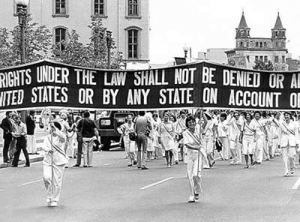Margaret Thatcher and Women in Government
“I am extraordinarily patient, provided I get my own way in the end.”
— Margaret Thatcher
One of the world’s most powerful women died today. Margaret Thatcher, Britain’s only woman prime minister, was 87.
Thatcher, leader of the country’s Conservative Party, was British prime minister from 1979 to 1990. According to CNN.com, she shared “a close working relationship” with former President Ronald Reagan, “with whom she shared similar conservative views.” Initially dubbed “Iron Lady” by Soviet journalists, she was well known (for better or for worse) for her personal and professional toughness. (For interesting commentary on Thatcher and her impact, see here, here, and here.)
Thatcher was a trailblazer, one of just a very few women to become heads of their country’s government. While women make up nearly half of the world’s population, worldwide, they represent roughly 16% of the members of national governing bodies. In the United States, women account for only 18.1% of Congress, 33% of the United States Supreme Court, and no woman has ever been elected president.
So, what’s the problem? Some would argue that there’s nothing stopping women from running for office, even for president. True, there are no laws that outright prohibit women’s participation in government. (Saudia Arabia, long the hold out on allowing women to vote and to serve in government, has finally reversed course.) But there are other barriers that may be less obvious.


